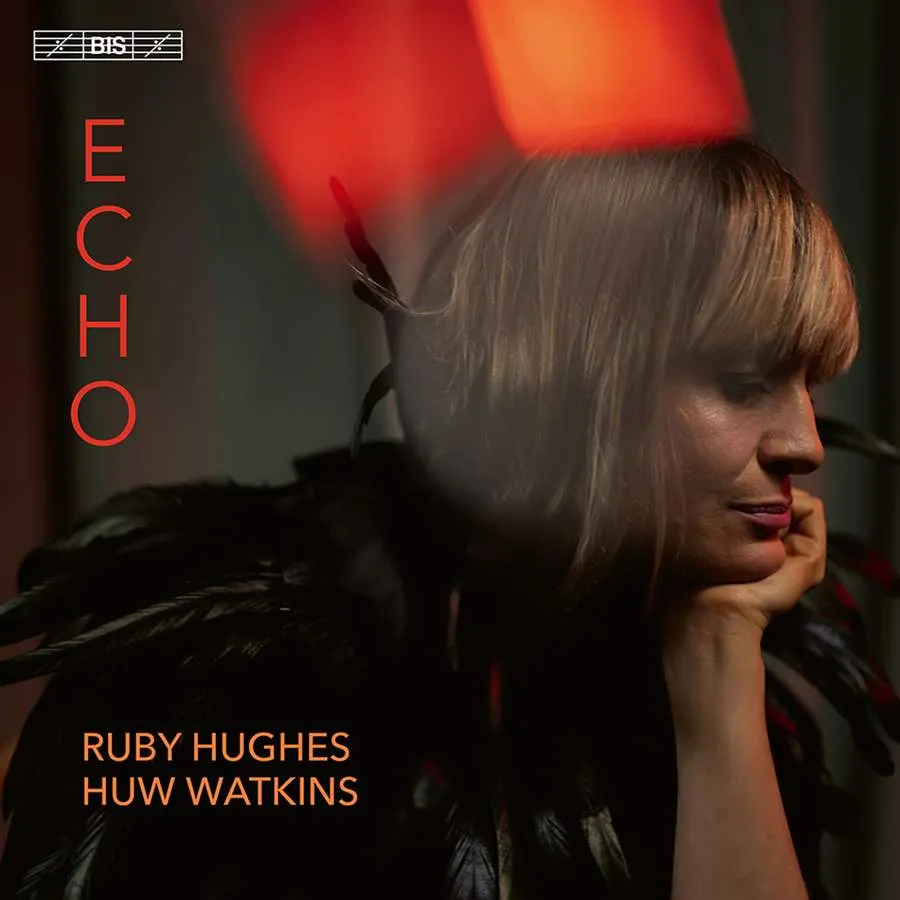
Echo Works by JS Bach, Purcell, Britten, Huw Watkins, Errollyn Wallen, Cheryl Frances-Hoad and Deborah Pritchard Ruby Hughes (soprano), Huw Watkins (piano) BIS BIS-2568 (CD/SACD) 63:33 mins
A rich skein of melancholy and introspection is woven throughout soprano Ruby Hughes’s latest collaboration with composer-pianist Huw Watkins. And at its heart is his song cycle Echo which receives its premiere recording in an adroit programme pondering love, loss and the passing of time – themes conspicuously to the fore in the cycle which was written for Hughes and premiered by the duo at Carnegie Hall in 2017.
To left and right of it are Bach and Purcell, plus a trio of Britten folksong arrangements including Dafydd y Garreg Wen, one of the eight arrangements for voice and harp Britten made a few months before his death. (It’s performed here in Colin Matthews’s version replacing the harp with piano). To end there are three 21st-century works implicating Deborah Pritchard, Cheryl Frances-Hoad and Errollyn Wallen – Pritchard’s The World, incidentally, also written for Hughes, and destined to be incorporated into a new cycle.
Echoes abound – literary as well as musical. And three of Britten’s affectionate Bach realisations (which he collected into the Five Spiritual Songs) are spliced with solo keyboard Bach including Watkins’s limpid account of the Sarabande from Partita, BWV 828 which ushers in a compelling Bachian sequence, mediated and unmediated. What intense imploration and contained longing Hughes finds in the arching contours of ‘Komm, süßer Tod’, the veiled opening of the second stanza particularly affecting – and, scintillatingly played, we’re jolted out of its soulful death wish by the two-part frolics of the Corrente from the Partita, BWV 830. Delivered with a winsome delicacy the Sarabande from the French Suite No. 3 counterpoints Hughes’s knowing serenity which cloaks ‘Gedenke doch, mein Geist, zurücke’ with an understatedness that yields to a haunting change of colour on the word ‘sterben’ (die).
Embracing an eclectic selection of poems ranging from Christina Rossetti to David Harsent, Watkins’s cycle shares Britten’s ability to meld text and musical gesture with an acuity seemingly effortless, almost plucked ready-formed out of the air. The title song is a translucent setting of Rossetti’s Echo, and above Watkins’s deliquescent accompaniment Hughes floats the line with a poise that treads as softly and enrapt as Rossetti’s text itself. It’s a hallmark of her calculatedly restrained artistry throughout. She’s an economical singer for whom ‘less is more’, instinctively husbanding her considerable resources so that emotional climaxes generate maximum impact; and she swaddles herself in the sentiment of Larkin’s If grief could burn out as if mindful of the ultimate sorrow that awaits in the benumbed, desolate landscape of Harsent’s Baby Blue.
Thomas Adès’ idiomatic realisation of Purcell’s By beauteous softness emerges coy and silkily seductive; the folk-song arrangements are artfully caressed – The Wren rapturously innocent yet at the same time worldly-wise – and the mood is compounded by a childlike innocence that pervades Wallen’s incantatory Christmas carol-cum carillon, Peace on Earth. An exquisite release touched with poignant pleasures and depths-plumbing reflections that echo, re-echo, linger, and endure.
Paul Riley